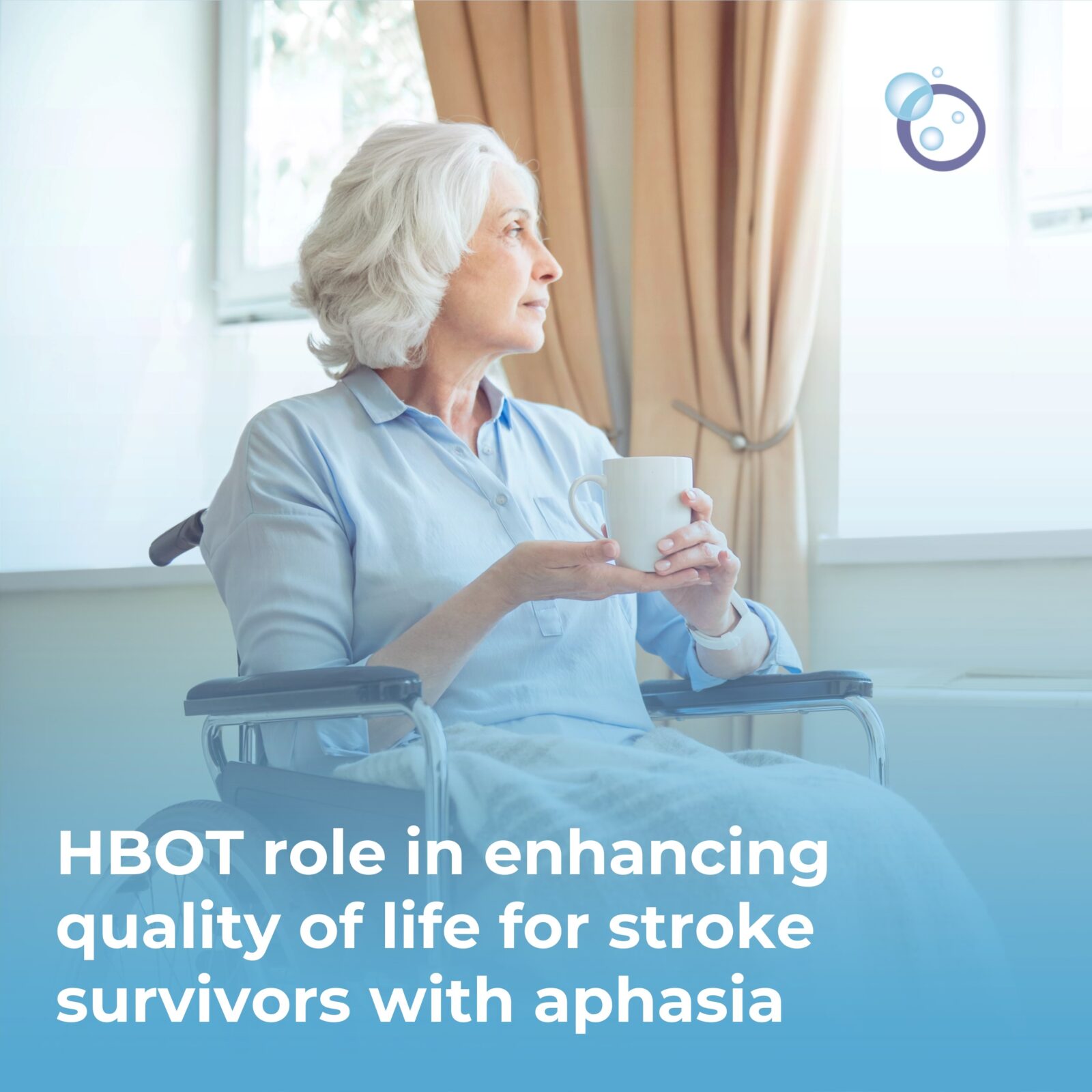
Hyperbaric Oxygen Therapy’s Role in Enhancing Quality of Life for Stroke Survivors with Aphasia
Poststroke aphasia, a condition resulting from brain damage that impairs language abilities, can significantly diminish a person’s quality of life. A recent comparative cross-sectional study has not only highlighted the challenges faced by individuals with aphasia but also pointed to the potential benefits of hyperbaric oxygen therapy (HBOT) in improving their well-being. This blog post summarizes the study’s findings and explores how HBOT could be a transformative approach in poststroke rehabilitation.
Understanding Poststroke Aphasia
Aphasia occurs when a stroke damages critical areas of the brain involved in language processing. It affects various aspects of communication, including speaking, understanding, reading, and writing. These impairments can lead to severe social and emotional consequences, drastically affecting daily life and overall quality of life.
Study Overview
The study aimed to compare the quality of life between stroke survivors with aphasia and those without. It involved a range of assessments, including standardized questionnaires and clinical evaluations, to measure the severity of aphasia and its impact on everyday living. Notably, the research also explored the effects of hyperbaric oxygen therapy on improving quality of life for those with aphasia.
Key Findings
- Diminished Quality of Life for Aphasia Patients: The study confirmed that stroke survivors with aphasia experienced a significantly lower quality of life compared to those without aphasia. This decline was evident in various areas, including social engagement, emotional health, and the ability to perform daily tasks.
- Social Isolation and Communication Barriers: Patients with aphasia often face heightened social isolation due to communication difficulties. This isolation leads to reduced social interactions and participation in activities, worsening feelings of loneliness and frustration.
- Emotional Health Challenges: The study revealed that individuals with aphasia are at a higher risk for anxiety and depression. The struggle to communicate effectively and the resultant social isolation contribute to these emotional challenges.
- Benefits of Hyperbaric Oxygen Therapy: A notable finding from the study was the positive impact of hyperbaric oxygen therapy on aphasia patients. HBOT, which involves breathing pure oxygen in a pressurized room, was associated with improvements in both communication abilities and overall quality of life. Patients receiving HBOT showed enhanced speech function and reduced emotional distress, highlighting the therapy’s potential to address both the physical and psychological aspects of aphasia.
- Variability in Response to Treatment: The extent of improvement varied among patients, with those experiencing severe aphasia showing more pronounced benefits from HBOT. This variability emphasizes the importance of personalized treatment approaches and the need for further research to optimize therapy protocols.
Implications for Care
The study underscores the importance of incorporating innovative treatments like hyperbaric oxygen therapy into poststroke rehabilitation programs. While traditional speech and language therapies remain crucial, the addition of HBOT could offer significant benefits by improving communication skills and reducing emotional burdens. Healthcare providers should consider integrating HBOT as part of a comprehensive care plan tailored to the individual needs of aphasia patients.
Conclusion
The impact of poststroke aphasia on quality of life is considerable, affecting both communication and emotional well-being. This study highlights the promising role of hyperbaric oxygen therapy in enhancing recovery and improving quality of life for those affected by aphasia. By combining HBOT with traditional rehabilitation methods, we can offer more effective support and potentially transform the lives of stroke survivors facing the challenges of aphasia.